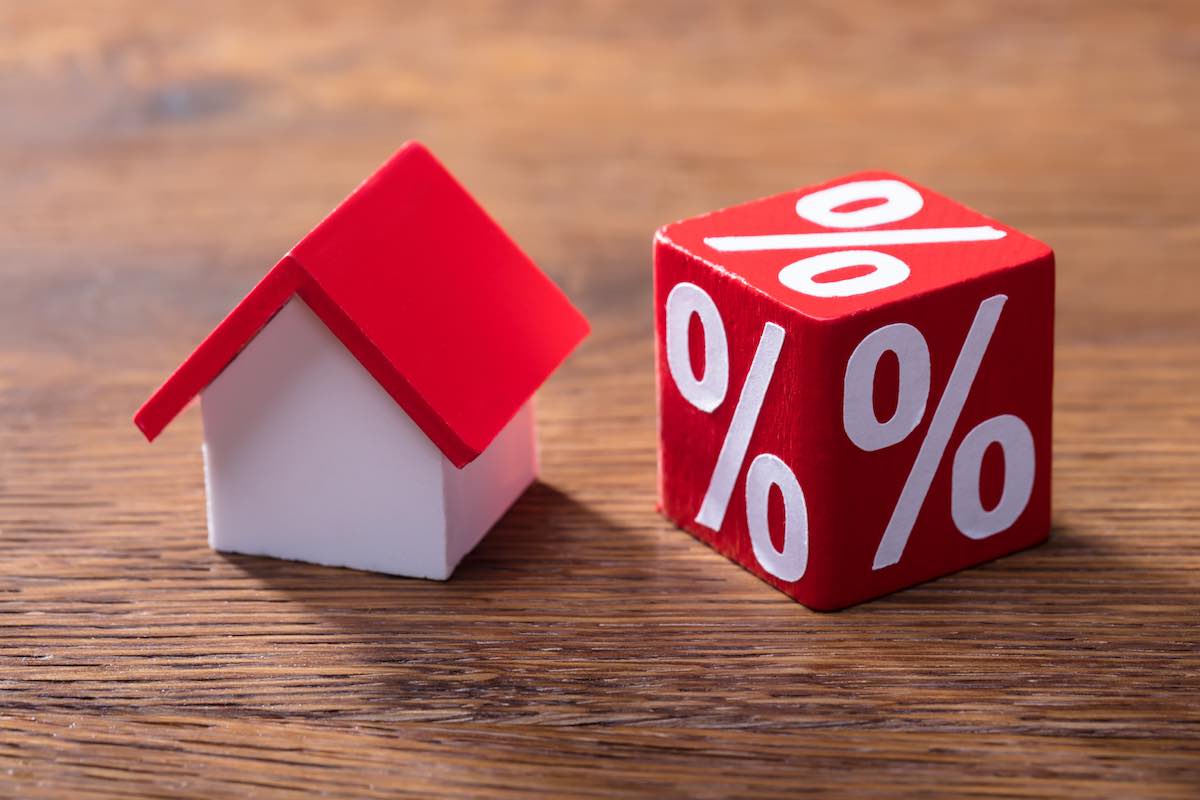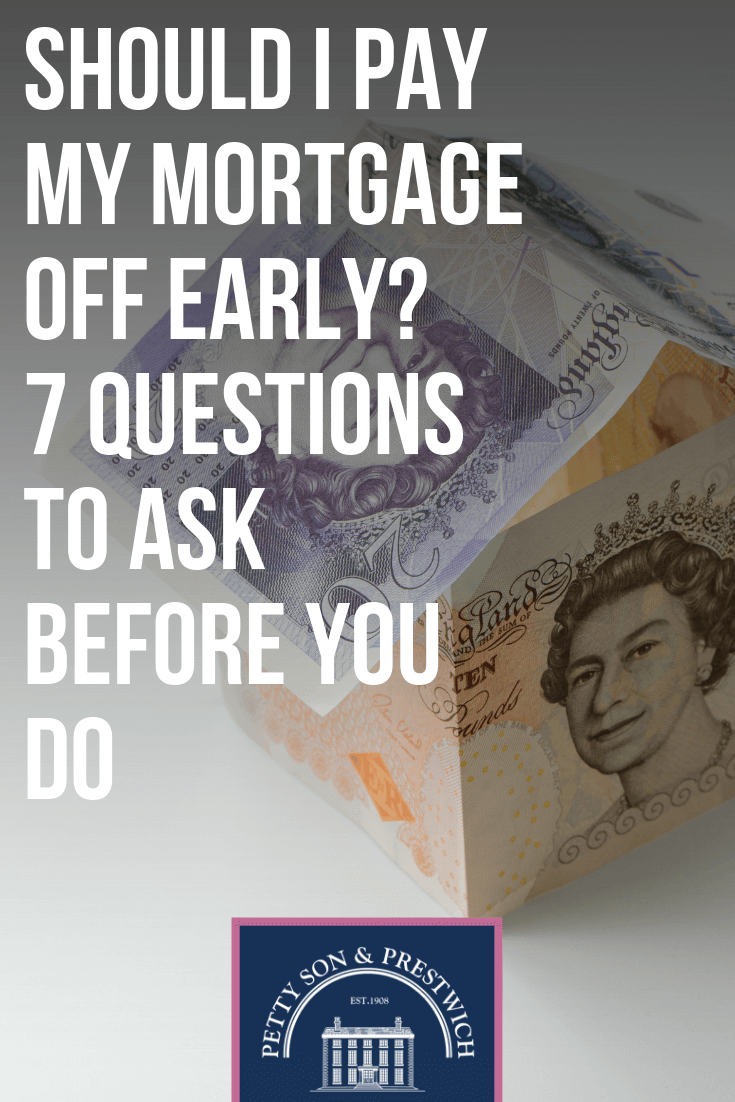For many, paying off their mortgage early is a no-brainer. But, while forking out less in interest and shortening the length of your mortgage term is certainly tempting, what’s right for one person might not be the best option for you.
So, with this in mind, we’ve put together a few questions you should ask yourself before you overpay your mortgage, whether that be monthly or in the form of a lump sum.
Let’s take a look!
Are there any penalties for early repayment?
The first thing you should question is whether or not your mortgage allows you to overpay. The vast majority will, but there are usually penalties involved if you’re tied into a fixed term with your lender.
The usual amount you can overpay is 10% of your outstanding mortgage balance, but not always. Make sure you double-check with your bank or building society as getting this wrong could prove to be very costly indeed.
If you’re outside of your introductory deal or fixed term, you should be able to pay off as much as you want, but do make sure this is the case before overpaying...especially if you’re parting with a lump sum.
What is the interest rate of my mortgage?

Knowing the current interest rate of your mortgage is essential if you’re considering paying it off early. Why? Well, as we’ll see in the coming sections, knowing your rate will arm you with the knowledge necessary to make an informed decision on whether overpaying is actually the right option for you.
It can be all too easy to hear a friend say they’ve saved five figures in interest charges and slashed the length of their mortgage and then think it’s automatically the right thing for you to do, too. However, you really do need to run the numbers for yourself to ensure you’re making the right move by paying off your mortgage early, and having your current mortgage rate to hand is the first part of that equation.
What other debts do I have?
This is the first instance where finding out your mortgage rate comes in handy as it will allow you to compare like-for-like the rates you are paying across all your debts.
The rule of thumb here is easy: pay off your most expensive debts first. Sounds like a stupid thing to say, I know, but you’d be surprised at just how many people fail to do this correctly.
Many, mistakenly, assume that the amount they owe is what makes the debt expensive, when it’s the interest rate they should be looking at. The higher the rate, the greater the potential for an increase in the debt, which makes paying it off harder and harder as time goes by.
So, if you have credit cards, store cards, personal loans, and other high-interest forms of debt, check the rates of interest you are paying. If they are higher than that of your mortgage it’s a good idea to clear those before you consider overpaying your mortgage.
Can I afford it?

This may seem like an odd question to ask as you’ve clearly got some spare cash on hand to even begin wondering whether you should pay off your mortgage early, but it’s still worth considering. The main problem for many is that they live from payday to payday, with little to no regard of what the future might hold. Doing so is a risky game to play.
So, what can we do to mitigate this? The answer is to have an emergency fund. However, lots of us either fail to set one up or are constantly raiding it in order to pay for this or that thing that we simply cannot wait for. That needs to change.
In short, we should all have an emergency fund of at least three (but preferably six) month’s living expenses to fall back on before we think about paying off more on our mortgages. Only then can we truly say we can afford to overpay.
How stable is my income?
Having an emergency fund in place is essential for everyone, but for some the amounts may have to increase to cover the volatility of their income. It’s important to ask yourself how stable your income really is. While there’s an element of the unknown about all our lives, for those who are self-employed or run their own business, this piece of the puzzle takes on a far greater significance.
Considering how stable your income is should not be done in a subjective manner, either. It’s easy to get this wrong (especially if you’re supplementing with debt from credit cards or similar), so you need to be 100% honest with yourself here and calculate your average earnings over the last year to come up with a solid idea of your monthly income.
Once you have this, you can then begin to look at what might change over the coming months and years. Do you have any contingency plans in place should your biggest client go broke? Is your job truly safe? Are there redundancies looming at work?
While none of us have a crystal ball, we can often strategize better with a little forethought, and this examination of our circumstances could throw up an unequivocal ‘no’ to the question of whether or not overpaying your mortgage is a good idea, so it’s worth the time and effort.
Would I be better off saving?

If you’re free from debt (apart from the mortgage) and have a solid emergency fund in place, paying down your mortgage is certainly on your radar, but not so fast...have you considered saving instead?
Although the rates on savings accounts often aren’t that great, you could still be better off saving than overpaying in some instances, and you should always do your homework to find out for sure rather than diving into the unknown.
Obviously, if you can find a savings account that pays a higher rate than what you are paying off on your mortgage, you should be saving, but it can get a little more nuanced when you take into account tax-free savings, too. If in doubt, you could always speak to a financial advisor who’ll put you right in terms of the best course of action to take.
Are there alternative investments to consider?
The final point on our list is one that you should consider with caution: alternative investments. It may be possible for you to earn more with an alternative investment than what paying off your mortgage will save, but you should never forget that all investments are speculative affairs and they carry a degree of risk. Are you really willing to gamble here?
If you’re in any way risk averse, paying off your mortgage is the correct decision in this instance. For those who feel an alternative investment is a better idea, be sure to do your homework first. Spend time going through all of your options and speak with those close to you, too. Your decision may well have a lasting impact on those you love, as well as on yourself.
If you’re in a position to pay your mortgage off early, you should definitely consider doing so. Asking yourself these questions first, though, will ensure that it’s the right thing to do both now and in the long term.
If you have any other property related questions or are simply looking to buy, sell, rent, or let in East London or West Essex, give our experts a call. We’ve been helping people just like you achieve their property goals for well over 100 years here at Petty’s and we’d love to assist you, too.
